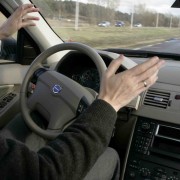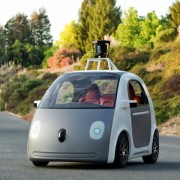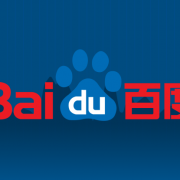News Roundup: Baidu Surprises By Offering Up Its Driverless Technology to the World For Free, Autonomous Trains to Debut in Delhi This June, and More
Jennifer van der Kleut
A roundup of some of the most interesting headlines to come out of the driverless and connected-car industries this week:
Baidu challenges the likes of Google, Tesla by offering its driverless tech to all
Chinese tech giant Baidu surprised industry analysts this week by offering up its driverless vehicle software to the world in what many are calling an attempt to challenge the likes of Tesla Motors and Google. Baidu is naming the project Apollo and says it will offer automakers all the tools they need to build an autonomous vehicle. “Essentially, Baidu is trying to become to cars what Google’s Android has become to smartphones – an operating system that will power a number of driverless vehicles,” CNBC explains. Baidu has been investing heavily in autonomous drive technology over the past year or two. The company has already tested driverless cars on highways in Beijing, and recently obtained a permit to test in California. Read more from CNBC.
Driverless Metro trains to debut in Delhi in June
Indian news media is reporting that Delhi Metro Rail Corporation (DMRC) is putting the finishing touches on a new system capable of operating without a driver, and says the public will be able to ride on it come June of this year. The trains will run on only two lines: Pink, which runs between Mukundpur and Shiv Vihar, and Magenta, which runs between Botanical Garden and Janakpuri west, covering a distance of 96 km. Testing took place between October and December of last year. Additional tracks are also being built, and testing will take place in new areas later this year. Read more from the Hindustan Times.
Grand Theft Auto 5 being used as simulation environment for driverless systems?
Possibly, soon. Professor Alain Kornhauser, professor of operations research and financial engineering at Princeton University, described the video game “Grand Theft Auto V” as “the richest virtual environment that we could extract data from” this week when speaking to media outlets. The actions of more than 1,000 virtual drivers and pedestrians in the game, along with “disordered roads” and changing weather offer a wealth of unpredictable conditions that can help teach artificial intelligence of driverless systems to respond safely, making the game a top-recommended game for developers to use as a training simulator. Read more from Engineering & Technology magazine.
Photo: A Metro train in Delhi, by Delhi Metro Rail Corporation



